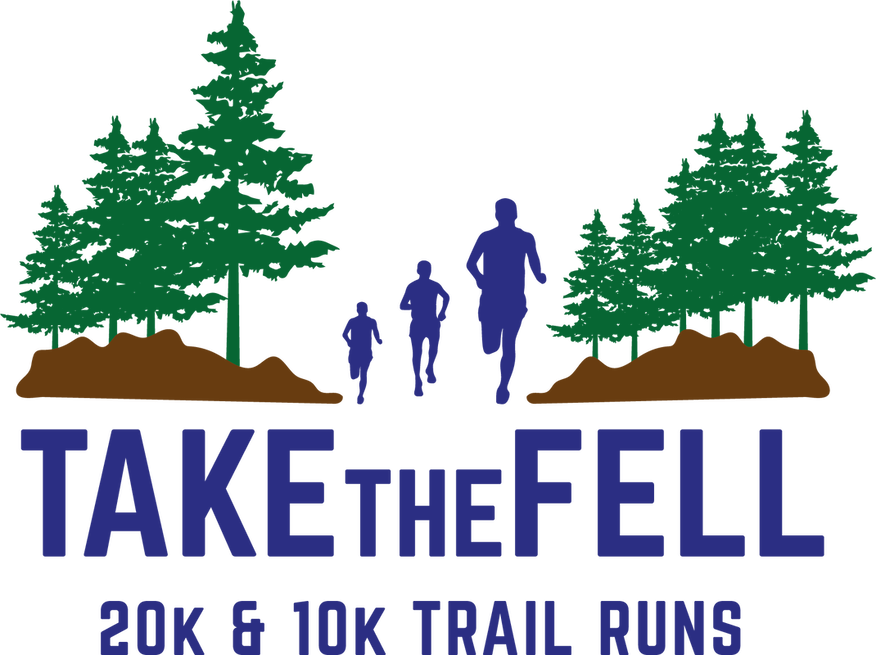To reserve your spot, pre-registration is required. Runners of all abilities are welcome to participate. Those entering the 10k must be at least 15 years old on the day of the race, and 20k participants should be 17 or older. Terms and conditions for entry apply.
DISTANCE |
ENTRY FEE |
|
10k Trail Run |
£24.00 |
|
20k Trail Run |
£30.00 |
Frequently Asked Questions
Trail running is a sport that involves running over trails of varying terrain and elevation. It's a fantastic way to enjoy the outdoors, but it also comes with its own set of challenges and questions for beginners and experienced runners alike. Here are some frequently asked questions (FAQs) about trail running, covering essential topics like gear, safety, training, and etiquette:
What gear do I need for trail running?
The basics include trail running shoes that offer good grip and support, moisture-wicking clothing, a hydration pack or water bottles, and depending on the length of your run, some form of nutrition like energy bars or gels. For longer runs or specific conditions, consider a hat, sunscreen, a map or GPS device, and a lightweight jacket.
How do I choose the right trail running shoes?
Look for shoes with a durable, grippy sole that can handle rough terrain, a comfortable fit that supports your foot type, and adequate protection against rocks and roots. It's often helpful to visit a specialised running store where you can get advice and try on different models.
What are the basic safety tips for trail running?
Always tell someone that you are at the event and use their details to complete the info on the back of your bib number. Carry a fully charged phone, stay on the marked route, be mindful of wildlife, and be prepared for weather changes. Carry enough water and nutrition, and consider a basic first aid kit for longer routes.
How is trail running different from road running?
Trail running often involves uneven terrain, more significant elevation changes, and requires more attention to where you're stepping. It generally requires a different type of effort, with more focus on stability and agility, and it can be more taxing on different muscle groups.
How can I improve my trail running technique?
Practice running on varied terrain to improve your agility and balance. Focus on maintaining a steady pace, taking shorter strides on steep or technical sections, and use your arms for balance. Hill repeats and strength training can also improve your power and stability on trails.
What should I do if I encounter wildlife on the trail?
Stay calm, make yourself appear as large as possible, and slowly back away while keeping an eye on the animal. Never approach or feed wildlife, and be particularly cautious during mating or birthing seasons when animals can be more aggressive.
How do I respect the environment while trail running?
Stick to marked trails to avoid damaging the surrounding ecosystem, don't litter (pack out what you pack in), avoid disturbing wildlife, and be considerate of other trail users by yielding the right of way when appropriate.
Can I trail run in any weather?
Yes, but preparation is key. Dress in layers for cold weather, and consider waterproof gear for rain or snow. Be mindful of the increased risk of hypothermia or heatstroke in extreme temperatures, and adjust your pace and equipment accordingly.
These FAQs cover the basics, but the beauty of trail running is that there's always more to learn and explore. Whether you're hitting the trails for the first time or looking to tackle new challenges, the trail running community is welcoming and supportive. Enjoy the journey!
What gear do I need for trail running?
The basics include trail running shoes that offer good grip and support, moisture-wicking clothing, a hydration pack or water bottles, and depending on the length of your run, some form of nutrition like energy bars or gels. For longer runs or specific conditions, consider a hat, sunscreen, a map or GPS device, and a lightweight jacket.
How do I choose the right trail running shoes?
Look for shoes with a durable, grippy sole that can handle rough terrain, a comfortable fit that supports your foot type, and adequate protection against rocks and roots. It's often helpful to visit a specialised running store where you can get advice and try on different models.
What are the basic safety tips for trail running?
Always tell someone that you are at the event and use their details to complete the info on the back of your bib number. Carry a fully charged phone, stay on the marked route, be mindful of wildlife, and be prepared for weather changes. Carry enough water and nutrition, and consider a basic first aid kit for longer routes.
How is trail running different from road running?
Trail running often involves uneven terrain, more significant elevation changes, and requires more attention to where you're stepping. It generally requires a different type of effort, with more focus on stability and agility, and it can be more taxing on different muscle groups.
How can I improve my trail running technique?
Practice running on varied terrain to improve your agility and balance. Focus on maintaining a steady pace, taking shorter strides on steep or technical sections, and use your arms for balance. Hill repeats and strength training can also improve your power and stability on trails.
What should I do if I encounter wildlife on the trail?
Stay calm, make yourself appear as large as possible, and slowly back away while keeping an eye on the animal. Never approach or feed wildlife, and be particularly cautious during mating or birthing seasons when animals can be more aggressive.
How do I respect the environment while trail running?
Stick to marked trails to avoid damaging the surrounding ecosystem, don't litter (pack out what you pack in), avoid disturbing wildlife, and be considerate of other trail users by yielding the right of way when appropriate.
Can I trail run in any weather?
Yes, but preparation is key. Dress in layers for cold weather, and consider waterproof gear for rain or snow. Be mindful of the increased risk of hypothermia or heatstroke in extreme temperatures, and adjust your pace and equipment accordingly.
These FAQs cover the basics, but the beauty of trail running is that there's always more to learn and explore. Whether you're hitting the trails for the first time or looking to tackle new challenges, the trail running community is welcoming and supportive. Enjoy the journey!





